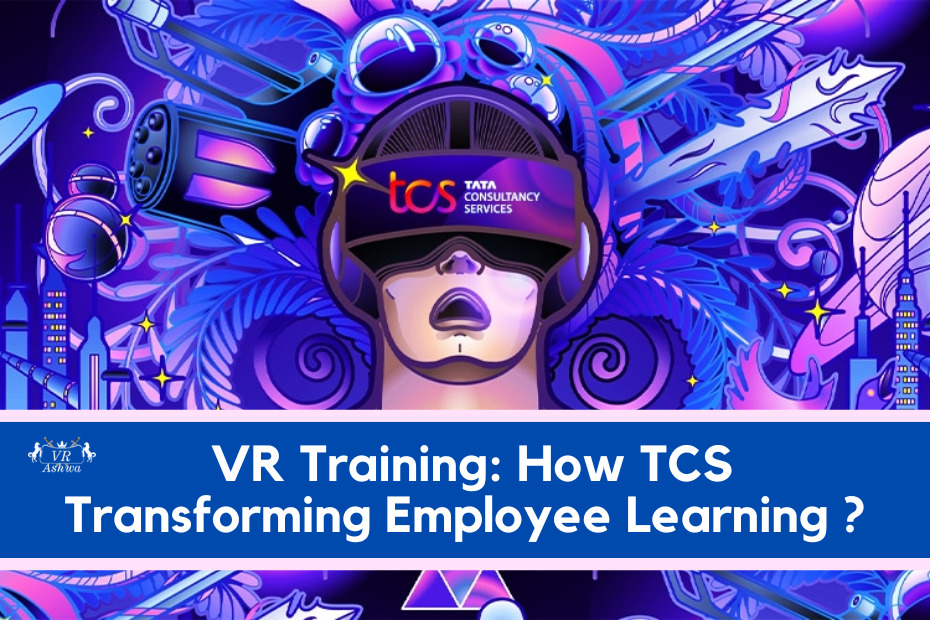Imagine a manufacturing company that used VR training to reduce workplace accidents by 50%. By simulating hazardous environments, employees could navigate risks without real danger. This exemplifies the transformative power of Virtual Reality (VR) training in revolutionizing employee development. Today, we will explore the world of VR training and understand how companies like Tata Consultancy Services (TCS) are harnessing their potential to unlock the full capabilities of their workforce.
The Impact of VR Training:
VR training offers many benefits over traditional methods, making it a game-changer for employee education. Beyond its immersive and engaging nature, VR training delivers tangible results. According to a study by Aberdeen Group, companies implementing VR training witness a remarkable 27% increase in employee engagement. This heightened engagement translates into improved knowledge retention and more effective learning outcomes.
But the benefits of VR training go beyond engagement. It is also a cost-effective solution for companies. With VR training, employees can learn remotely, eliminating the need for costly travel and accommodation expenses. This opens new possibilities for training employees across different locations, saving valuable time and resources.
Moreover, VR training offers flexibility that traditional methods simply cannot match. Employees can access training materials on demand, learning at their own pace and convenience. This flexibility ensures that learning can happen anytime, anywhere, seamlessly integrating with employees’ busy lives. No more rigid training schedules or missed opportunities for growth.
How VR Training Transforms Companies and Individuals
Consider the manufacturing company that reduced workplace accidents by 50% through VR training. Immersing employees in simulated hazardous environments taught them to navigate risks without danger. This hands-on experience translated into a safer working environment for all.
Imagine the sales team that focused on VR training to enhance their skills. By immersing themselves in virtual customer interactions, sales representatives could practice and refine their sales techniques. This practical experience improved confidence and performance, increasing sales and customer satisfaction.
Furthermore, VR training has empowered pilots to master complex aircraft operations. Simulating realistic flight scenarios allows pilots to refine their skills and build muscle memory in a safe and controlled environment. This translates into enhanced competence, fewer accidents, and a smoother flying experience for all passengers.
The Future of VR Training: Overcoming Challenges, Unlocking Potential
While the potential of VR training is undeniable, challenges remain on the path to widespread adoption. Companies like TCS are at the forefront of addressing these hurdles, ensuring the successful implementation of VR training programs.
Hardware compatibility poses a significant challenge, as VR hardware can be complex and expensive. Ensuring compatibility across different devices and software platforms is crucial to provide a seamless training experience for all employees.
Content creation is another consideration. Developing high-quality VR content requires time, resources, and expertise. Striking a balance between engaging simulations and cost-effectiveness is vital for the long-term sustainability of VR training programs.
Performance optimization is also crucial. VR can be demanding on hardware, potentially leading to performance issues. Fine-tuning software and hardware configurations is essential for smooth and immersive user experiences.
TCS addresses these challenges by carefully selecting and optimizing VR hardware, partnering with content creators to develop engaging simulations, and investing in performance optimization to deliver top-notch training experiences.
Future of Employee Learning: VR Training Unleashes Potential
Practical employee training is more critical than ever in the fast-paced digital age. VR training offers a transformative solution that engages, educates, and empowers employees like never before. With its immersive experiences, cost-effectiveness, and flexibility, VR training is redefining the boundaries of learning.
Companies like TCS are leading the charge, leveraging VR training to unlock the full potential of their employees. VR training has become an indispensable tool for organizations seeking a competitive edge by fostering engagement, driving performance, and ensuring safety.
So, are you ready to embrace the future of employee learning? The power of VR training is within your reach. Step into virtual reality and watch your employees thrive like never before. Let’s unlock their true potential and drive success in this ever-evolving world together.

